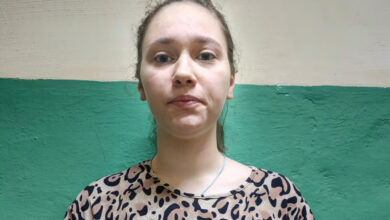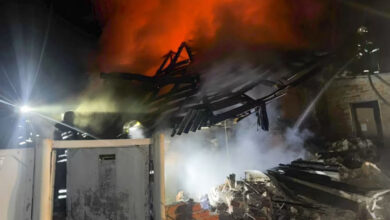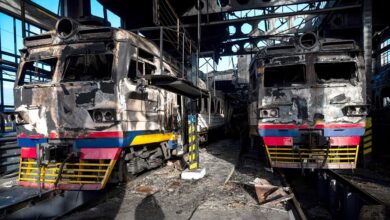Istanbul–Six world powers will try to persuade Iran to rein in its nuclear program at talks on Friday, with little expectation of a major breakthrough but hope they can at least agree on a process that will bring more talks.
Western countries believe Iran is working to develop a nuclear bomb. Tehran says its nuclear program is peaceful. Friday's talks in Istanbul are a follow-up to talks last month in Geneva, which were the first held in more than a year.
Iran's nuclear standoff with the West has escalated in the past year, with the United Nations imposing new sanctions and Western states rejecting a revised proposal for Iran to swap some of its fuel abroad as too little, too late.
European Union foreign policy chief Catherine Ashton heads the delegations representing six big powers — Britain, China, France, Germany, Russia and the United States. They will meet with Iran's nuclear negotiator Saeed Jalili.
"We're not expecting any big breakthroughs but we want to see a constructive process emerge that … leads to Iran engaging with the international community in a credible process and addressing the international community's concerns about its nuclear program," US State Department spokesman Mark Toner said on Thursday.
The West says Iran has failed to comply with UN resolutions demanding it curb enrichment and grant unfettered access to its nuclear sites. The prospect of an Iranian nuclear weapon feeds fears of a Middle East conflict should the United States or Israel opt to attack it.
A spokesman with a delegation led by Under-Secretary for Political Affairs William Burns in Istanbul said Washington was using a dual track approach of diplomacy and pressure.
"The onus is on Iran to take concrete and convincing steps," Mike Hammer, National Security Council spokesman, said.
Bruno Tertrais, an Iran expert at the Paris-based Foundation for Strategic Research, said the best that should be hoped for from the Istanbul meeting was an agenda for future talks, which would require a positive gesture from the Iranian side.
"The expectations are fairly low," Tertrais said.
In their search for an opening, the powers may go back to past proposals for a nuclear fuel swap, whereby Iran would give low-enriched uranium (LEU) in exchange for higher enriched uranium (HEU) that could be used at a medical research reactor.
The idea was first mooted in 2009. Since then Western powers say Iran's LEU stockpile has doubled, and it has also begun making its own HEU, so any future agreement would have to go further than was discussed in the past.
Going into the Istanbul talks, Iranian officials said they were ready to discuss reviving a swap agreement based on one brokered last year with Brazil and Turkey in Tehran, which was rejected by the Western powers for not going far enough.
The State Department's Toner said the United States was willing to discuss an updated fuel swap proposal, if it reflected the progress Tehran's has made on uranium enrichment in the two years since the idea was floated.
Tougher sanctions imposed on Iran since June last year, including steps targeting its vital oil and gas sector, have hurt the economy and hampered its nuclear program.
Covert operations by the United States or Israel may have also damaged Iran's program, including a computer worm called Stuxnet, which experts say may have targeted equipment at Iran's Natanz enrichment site.
Ahead of the Istanbul talks, the United States spoke of imposing harsher unilateral sanctions, while Russia reiterated its view the prospects for rolling back sanctions should be discussed to help persuade Iran to cooperate.
On the eve of the talks, Iran's envoy to the International Atomic Energy Agency (IAEA) Ali Asghar Soltanieh delivered a defiant message, saying Iran's enrichment activities would continue at an underground facility at Fordow, near the city of Qom, even if its nuclear sites were attacked.




